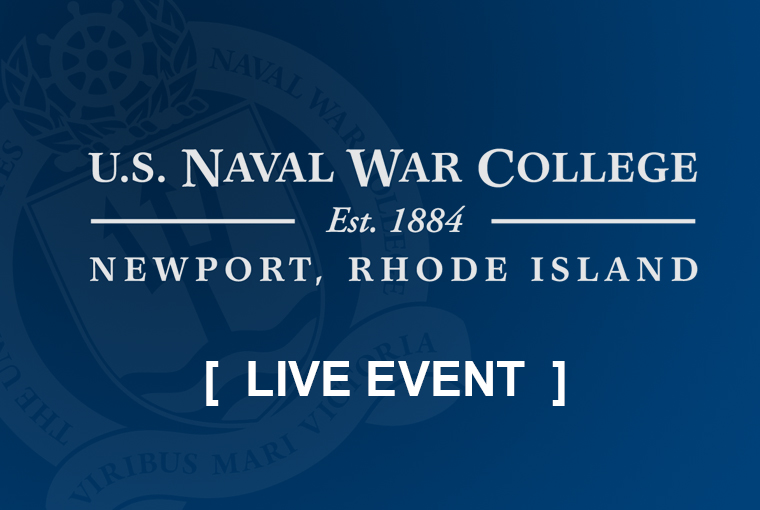Lectures of Opportunity: "Remain Cheerful: Baseball, Britannia, and American Independence -- 4 July 1918"

About this Event
Event Information
U.S. Naval War College, LOO Coordinator
This event is not open to the general public
This event is for U.S. Naval War College students, faculty and staff.Remain Cheerful: Baseball, Britannia, and American Independence -- 4 July 1918
As the United States mobilized for the First World War, baseball loomed large in the American effort on the domestic front and abroad. Drafted into service, the players on the 2nd Naval District team based in Newport included professionals from the Boston Red Sox and New York Yankees -- including Mike McNally, Casey Stengel, and Herb Pennock. Notably, Stengel and Pennock were later inducted into the Baseball Hall of Fame.
Former President Theodore Roosevelt helped organize the 2nd Naval District team, observing them playing ball at Basin Park in Newport. He was very pleased as the 2nd Naval District team dominated the YMCA and Knights of Columbus baseball leagues in the United States throughout the summer of 1917.
Concurrently, Admiral William S. Sims issued orders for Navy warships to establish baseball teams to play Army teams on the western front. He did so to rally Anglo-American collaboration in Europe.
The novelty of American baseball was very popular in Britain and France, as King George V took great interest in American baseball. Under orders promulgated by Sims, "frankfurters" became known as "hot dogs" as a derogatory reference to the dachshunds of Kaiser Bill.
Sims became embarrassed by the fact that the Army kept beating the Navy teams on the western front. Therefore, as Commander, U.S. Naval Forces in Europe, Sims arranged orders assigning some of the key ringers from the 2nd Naval District baseball team to the "London Flagship" headquarters in 1918.
The Army-Navy "world series" of the Anglo-American Baseball League symbolically culminated on the on the 4th of July, 1918. The British Minister of Munitions, Winston Churchill, spoke about the greatness of George Washington and the renewed transatlantic spirit of unity between the British Empire and United States before the ballgame. That afternoon, King George V joined Churchill and Sims with a crowd of 70,000 fans at Stamford Bridge Football Grounds near London.
Navy dominated the 4th of July game of the series against Army. The ballplayers then received inscribed watches from King George V. Then, the King signed a baseball and presented it to Sims in a symbolic gesture of transatlantic solidarity in a world at war.
In the century since this historic moment, the "Cardines Classic" has become a Naval War College tradition.
Through the good offices of the Naval War College Foundation and the Pritzker Military Foundation, our Army-Navy Baseball game at Cardines Field in downtown Newport also serves as family event designed for all ages to learn something about the First World War and its lasting influence upon the twenty-first century. In addition, the ballgame also recalls the service of those who served before us.
In particular, the ballpark formerly known as Basin Field in remains among the oldest in the United States. U.S. Army Pvt. Bernardo Cardines, a Newport resident of Italian heritage, once played baseball with his friends as a member of the Newport YMCA baseball club. At age nineteen in 1917, Cardines applied to become a citizen of the United States after volunteering for duty in the U.S. Army. Serving in combat on the western front, Cardines volunteered for a trench raid during the St. Mihiel offensive in France on 20 September 1918. He was last seen charging a German machine gun emplacement to provide cover for his buddies as they withdrew from the enemy trench. As the first resident of Newport to be killed in the First World War, the city rechristened Basin Park in his honor in 1936.
Today, Cardines Field is recognized by Major League Baseball as the oldest ballpark in the United States. The Naval War College is proud to offer this unique opportunity for you and your family to join the with the crowd to have some peanuts and cracker jacks and root, root, root for your team - whether Army or Navy.
About this Lecture
Lectures of Opportunity offers U.S. Naval War College (NWC) students, faculty, and staff an opportunity to learn more about national and international socio-political subjects that may be of relevance to the NWC community.
More on Lectures of OpportunityMost Recent
8:00 a.m.
U.S. Naval War College, 686 Cushing Rd, Newport, RI 02841
U.S. Naval War College, 686 Cushing Road, Newport, RI 02841
U.S. Naval War College, 686 Cushing Road, Newport, RI 02841
8:00 a.m.
U.S. Naval War College, 686 Cushing Road, Newport, RI 02841
U.S. Naval War College, 686 Cushing Rd, Newport, RI 02841
